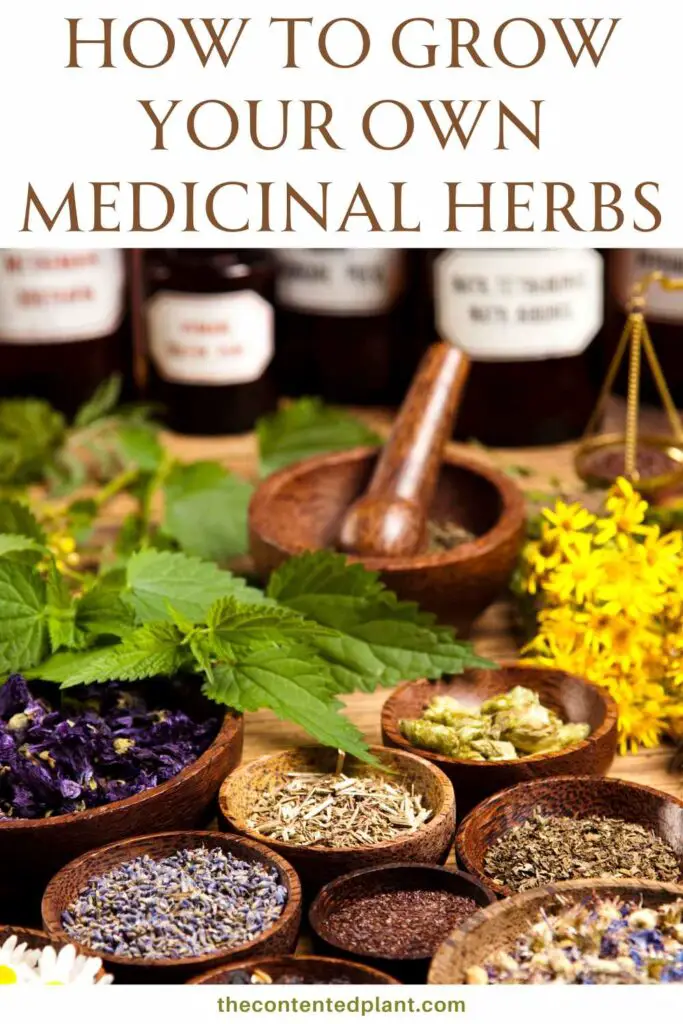Medicinal herbs have been used for centuries to treat a wide variety of ailments and conditions. Many herbs have medicinal properties that can help to reduce inflammation, Boost the immune system, Promote relaxation, Improve digestion and Treat skin conditions.
In the garden, herb flowers and scents attract pollinators and beneficial insects that help balance our ecosystem and add beauty to our surroundings.
Growing organic Medicinal Plants that reach a good size and attract pollinators outdoors is a beautiful, healthful use of your land. And vital for rebuilding our declining pollinator populations. Learn more about how to build your own pollinator garden with herbs in this post.

Best Herbs to Grow Outdoors:
Herbs that grow tall or really bushy are great candidates for your target pollinator herb garden outdoors. Be sure to place the garden close to the kitchen door so you can easily harvest fresh herbs as you need them. And…With all herb gardens be aware many herbs tend to go wild and get invasive if not properly contained. Give your garden a lot of room or keep the plants in pots to control them.
Here are some great Herbal candidates for Growing outdoors:
Echinacea: Echinacea is a lovely flowering plant that is native to North America. It has been used medicinally for centuries to boost the immune system and reduce inflammation. Echinacea can be taken as a tea, capsule, or tincture to help fight off colds and flu. It can also be applied topically to treat wounds and skin infections. Echinacea plants prefer bright, indirect light and well-draining soil.
Lavender: Lavender is a powerfully fragrant herb that is often used in aromatherapy. It has calming and soothing properties that make it helpful for relieving stress and promoting relaxation. Lavender can be taken as a tea or tincture to help with sleep and anxiety, or applied topically to treat skin irritation and burns. Plant it in your garden for its gorgeous purple flowers. The pollinators also love this plant. Lavender plants prefer bright, indirect light and well-draining soil.
Rosemary: Rosemary is a fragrant herb that is often used in cooking. It also has many medicinal properties, including the ability to improve memory and cognitive function. Rosemary plants prefer bright, indirect light and well-draining soil. Rosemary can be taken as a tea or tincture to improve memory and brain function, or applied topically to treat muscle pain and improve circulation.
Licorice: Licorice is a root herb that has been used in traditional Chinese medicine to support the digestive system and reduce inflammation. It can be taken as a tea, tincture, or capsule, or used to make a decoction by simmering the sliced roots in water for 30-60 minutes. It grows well outdoors in many conditions.
Astragalus: Astragalus is a root herb that grows well in the garden outdoors in garden zones 6 to 9. This herb has been used in traditional Chinese medicine for centuries to boost the immune system and support overall health. It can be taken as a tea or tincture, or used to make a decoction by simmering the sliced roots in water for 30-60 minutes.
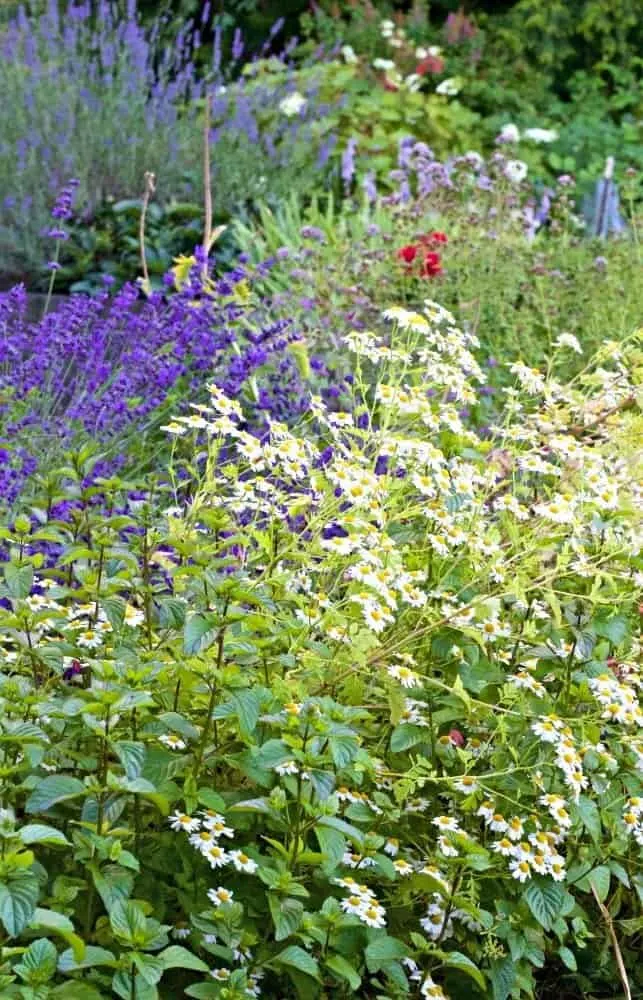
When It’s Beneficial to Grow Medicinal Herbs Indoors:
Some herbs are best grown indoors. Which herbs you want to grow close at hand in your kitchen or other sunny place depends on you. Growing medicinal and Kitchen herbs indoors is convenient if you have a green thumb and, in some climates, necessary if you want fresh organic, healthy herbs available year round.
Growing herbs indoors allows you to control the growing conditions. This ensures you the plants will be potent and flavorful. Healthy plants have the optimal temperature, light, and moisture levels for their growth. Properly managing the growing conditions of your herbs produces more consistent results in the herbs you grow. This is important when you plan to use them for medicinal purposes.
Organically growing your Indoor herb gardens ensures you grow healthy herbs free of harmful chemicals. Make sure you are using organic seeds, starts and soil.
Depending on your location, certain medicinal herbs may not be available or may be out of season. By growing herbs indoors, you can have a consistent supply of fresh, easily accessible herbs throughout the year.
Finally, Growing medicinal herbs indoors can be a fun and educational hobby, allowing you to learn more about the plants and their uses. You can also learn how to unlock their valuable properties in various ways.
- Learn how to Dry or freeze herbs for healthful teas, recipes and soups.
- Make candles or soaps with herbs that have aromatic properties or have healthful properties that easily absorb into the skin for soaps.
- Make unguents and ointments like this one, from herbs that relieve itchiness, rashes and sooth dry skin.
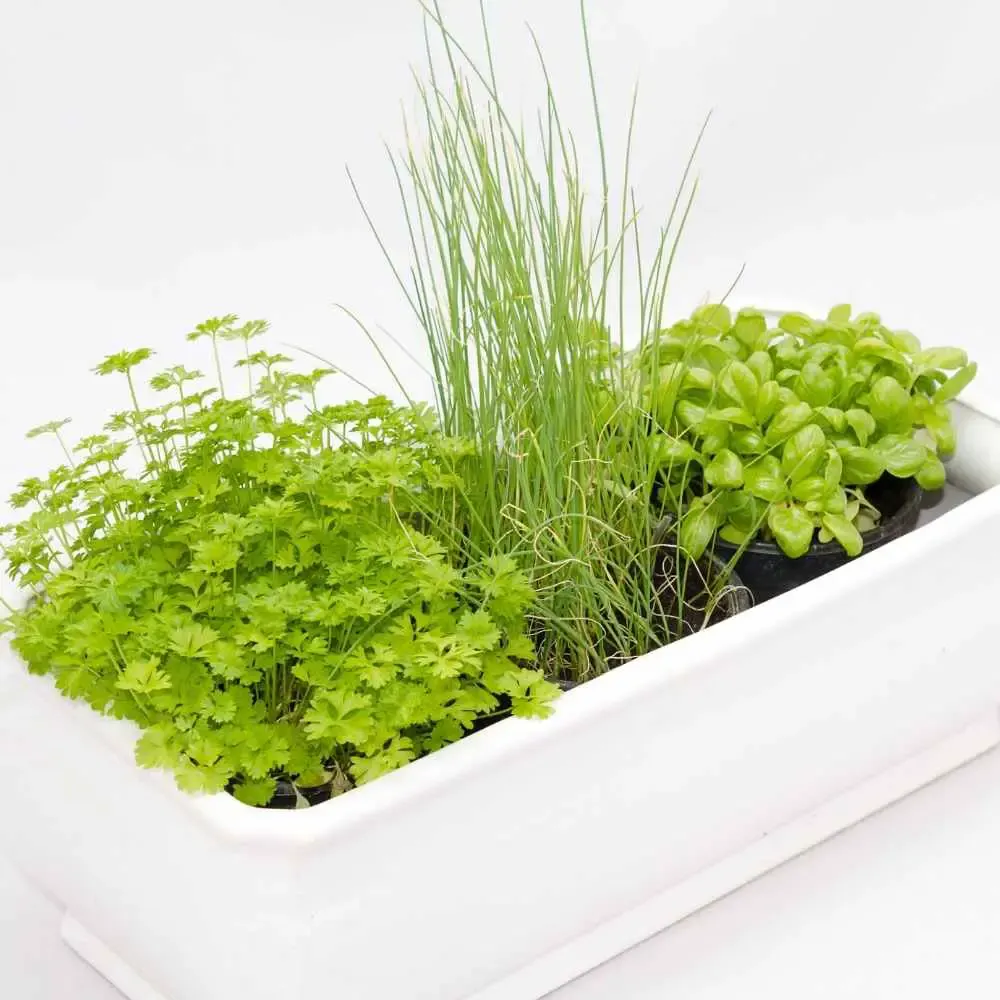
Growing Medicinal Plants and Kitchen Herbs Indoors:
You can grow medicinal plants and culinary herbs indoors as long as you can provide them with the proper light, water, and soil conditions. Many herbs, such as basil, rosemary, and thyme, prefer bright, indirect light and well-draining soil. You can grow these herbs in pots or containers on a windowsill, in hanging baskets, or on shelves.
It is important to make sure that the plants have enough light. Proper lighting is essential for their growth and development. If you do not have a sunny windowsill, you can use grow lights or fluorescent lamps to provide the plants with the light they need. It is also important to water the plants regularly. They will need a consistent supply of moisture to thrive. But dont go crazy with watering or they will get root rot.
In addition to providing the plants with the proper light and water, use the right type of soil. A well-draining soil mix is important for most herbs, as they do not like to sit in wet soil for long periods of time. You can use a commercial organic potting mix or make your own by mixing together equal parts of peat moss, vermiculite, and perlite.
Some Herbs to Grow Indoors:
There are many medicinal plants and kitchen herbs that you can grow indoors. The best candidates for indoor growing are herbs that need year round warmth and are small enough to be grown in a small pot. Your challenge is to provide them with the proper light, water, and soil conditions.
By providing your herbs with the proper care and attention, you can enjoy a fresh supply of medicinal plants and flavorful herbs all year round. There are many valuable medicinal herbs that can be grown in a kitchen, each with its own unique set of health benefits.
Basil, chives, cilantro, parsley and many other culinary herbs grow well in kitchens and can offer health benefits for your family. Read more about growing culinary herbs indoors here.
Thyme is an example of a culinary herb that also provides medicinal properties. In this case, Thyme has antimicrobial properties and has been used medicinally to treat a variety of conditions, including respiratory problems and skin conditions.
Thyme can be taken as a tea or tincture to help with respiratory problems and boost the immune system, or applied topically to treat skin infections and wounds. Thyme plants prefer bright, indirect light and well-draining soil.
Here are a few more medicinal plants that grow well indoors, can be used in recipes and are fantastic for your health.
Gotu Kola:
Reminiscent in looks to Pileas, the Gotu Kola makes a pretty plant for a kitchen window sill or shelf. It will trail, if allowed, over the pot. Eat the leaves from the plant or add the fresh washed leaves to Salads, smoothies or green juice.
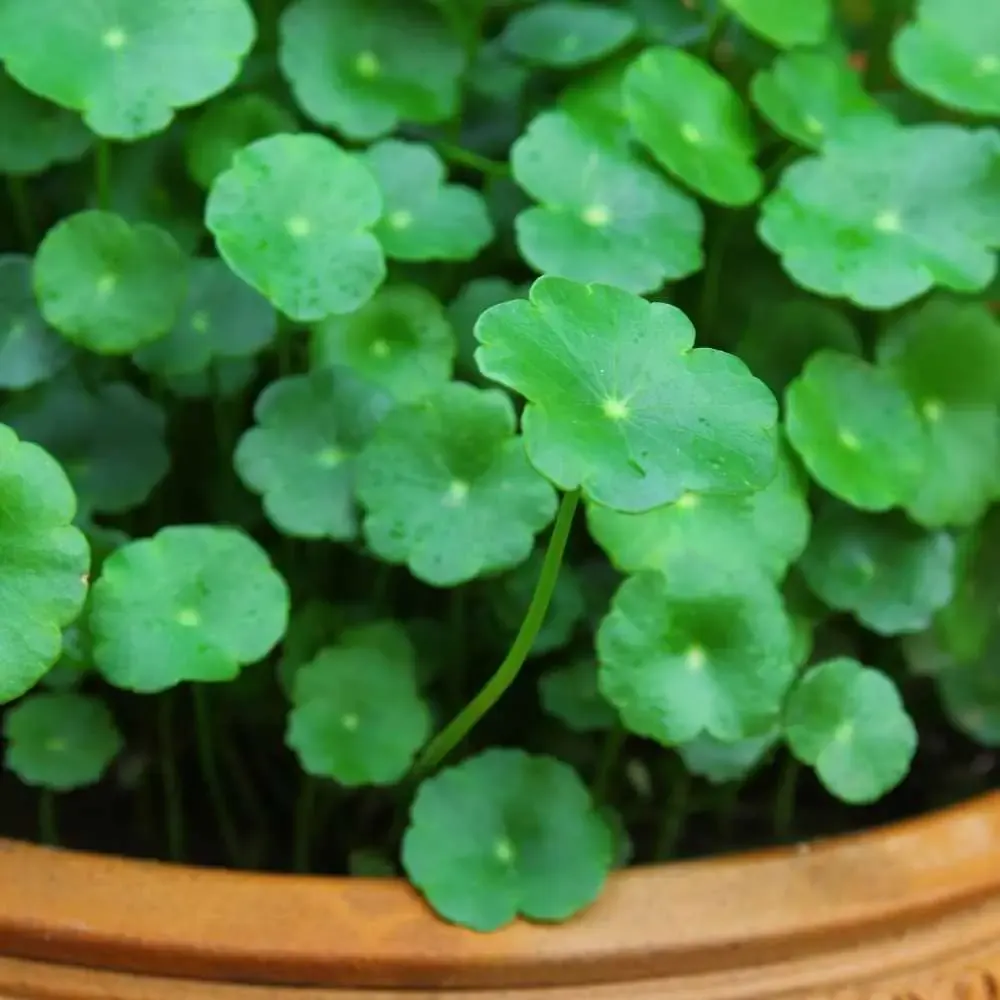
The Gotu Kola plant contains compounds like triterpenoid saponins, which are common in medicinal plants. Researchers believe these compounds are responsible for the wide range of health benefits.
Growing this plant is easy. Just begin with a good quality organic potting soil. Gotu kola enjoys a moist soil and needs only moderate light. that makes it a great candidate for indoor growing.
Turmeric :
Turmeric is a root herb that contains curcumin, a substance with powerful anti-inflammatory and antioxidant properties. Most studies use turmeric extracts that are standardized to include large amounts of curcumin. This herb has been used in traditional Chinese medicine to reduce inflammation and support overall health. It can be taken as a tea, tincture, or capsule, or used fresh in cooking.
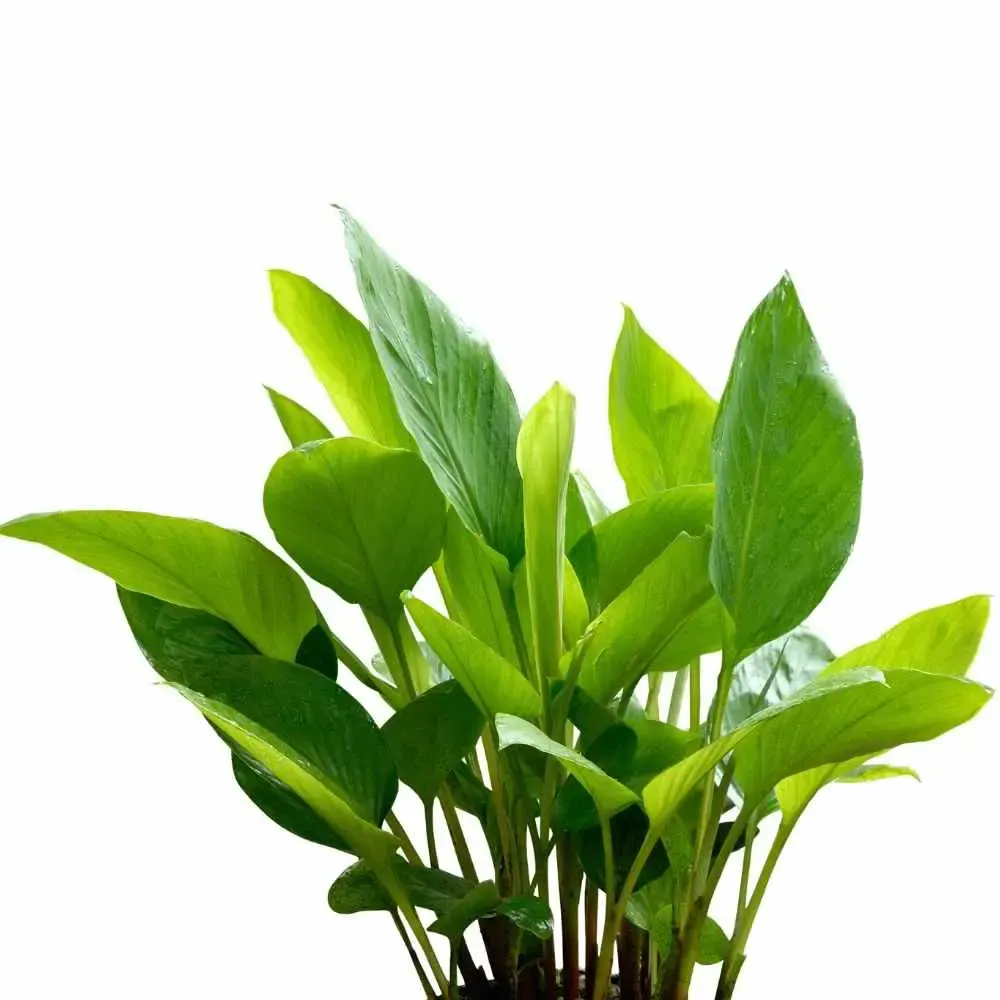
Turmeric is a relative of ginger and can be easily grown in pots in your kitchen or sun room. All you need is a piece of turmeric rhizome. You can purchase this as some stores or online.
Shop Turmeric plant and Roots On ETSY:
Like ginger, turmeric grows best in loamy soil with a moderate moisture content in bright indirect light. Indoors you can add artificial lighting as needed. Warmth proper light and moderate watering in a good organic soil will produce a great plant with many health benefits.
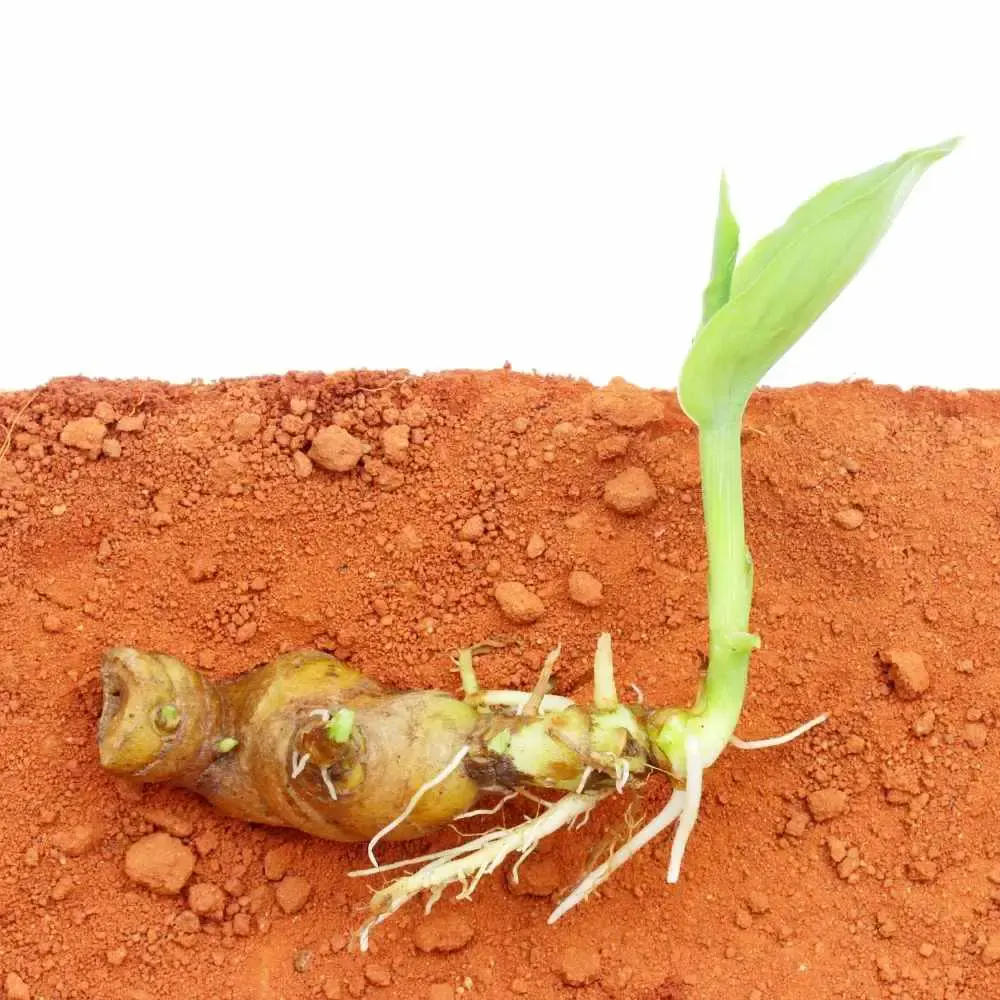
Aloe Vera
Aloe vera is a succulent plant that is easy to care for indoors. Aloe is an important medical plant to grow in your kitchen in a sunny window or under artificial light. The gel from the leaves of the aloe vera plant has medicinal properties that can be applied topically to treat cuts, burns, and other skin conditions.
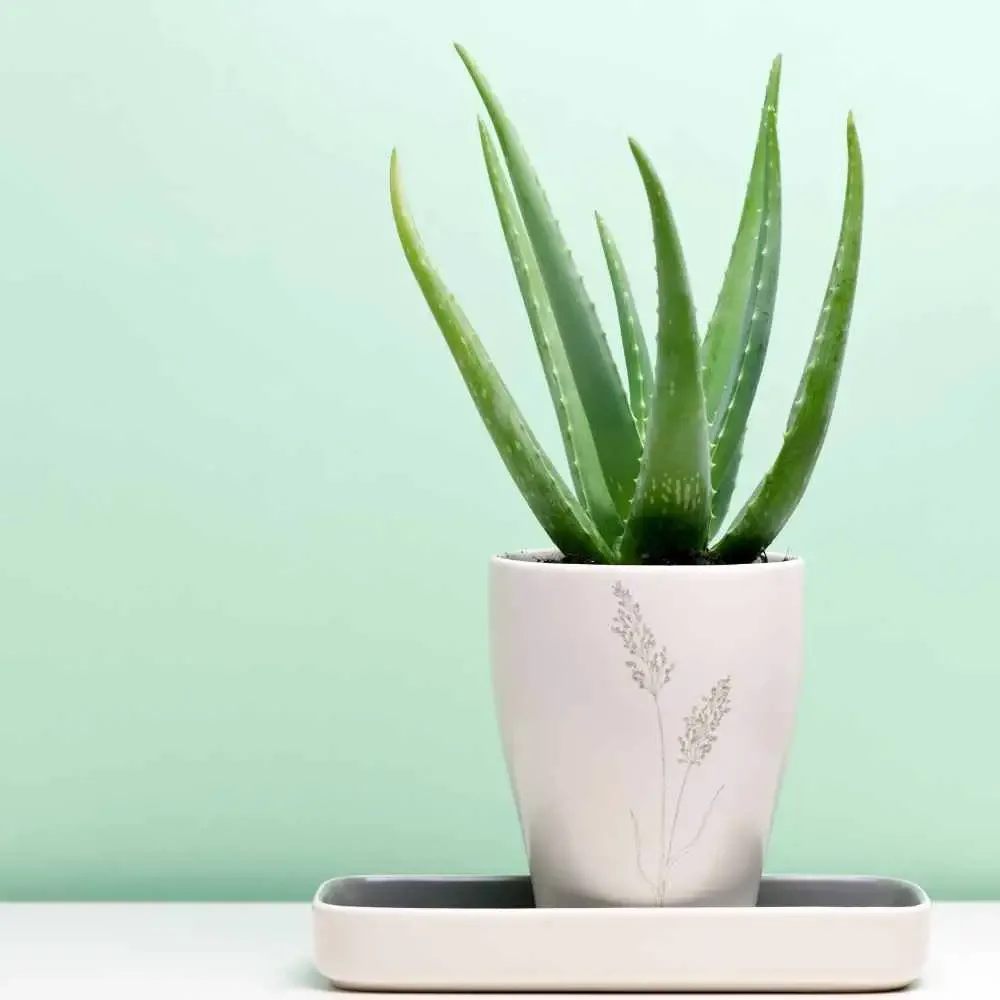
For tips on growing Aloe and learning all about this plant please read our post on Aloe Vera plants here.
To use the plant for burn and skin irritation relief you can quickly access the healing gel in the leaf arms by breaking off a piece and immediately rubbing the wetness over your skin irritation or burn. It’s very helpful.
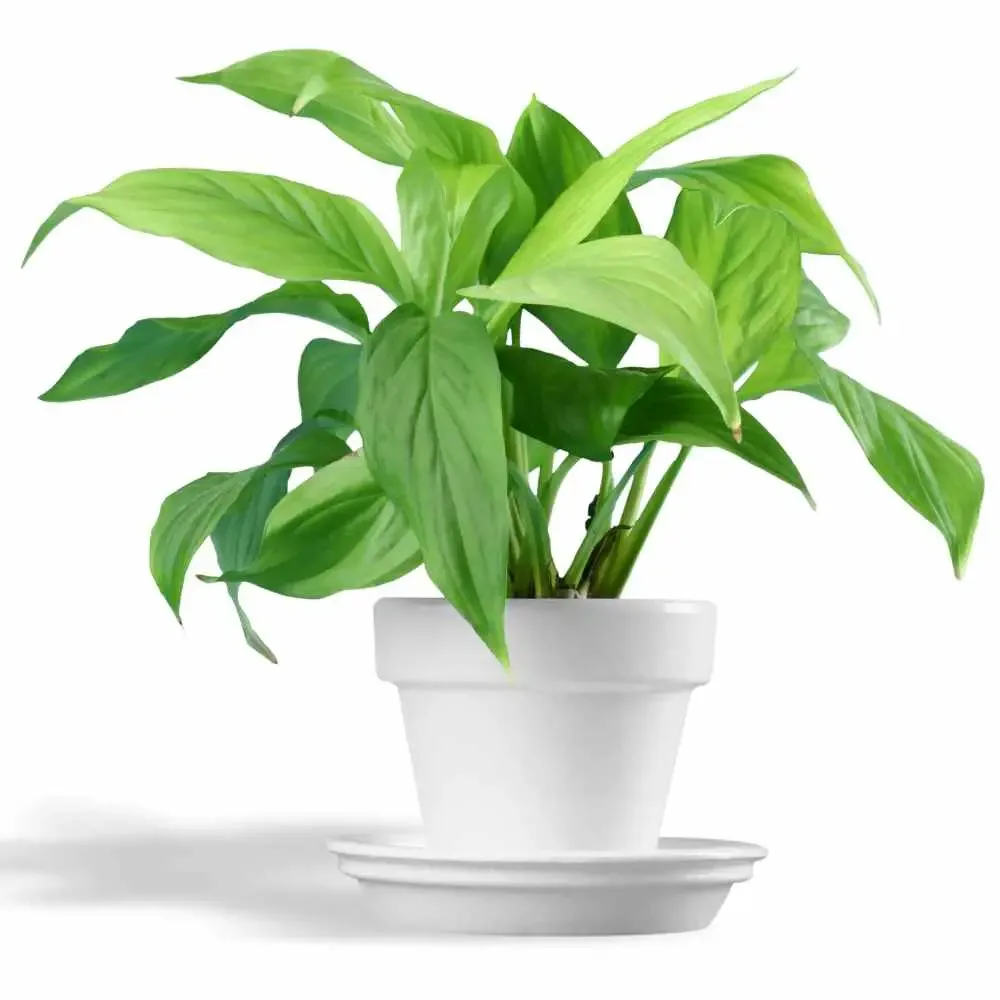
Ginger:
Ginger is a root herb with many health benefits. This popular herb is used in traditional Chinese medicine, and is well known now through the western cultures as well, to improve digestion and reduce nausea. It can be taken as a tea, tincture, or capsule, or used fresh in cooking. It grows well as a potted plant indoors.
Find Edible Ginger plant on Esty
The Ginger root is where all the action is for your health. This plant is very pretty and the size is small enough (about 18 inches) to make a lovely indoor plant. Just let it grow about three years before harvest and start small when taking up the roots so the plant will continue to flourish.
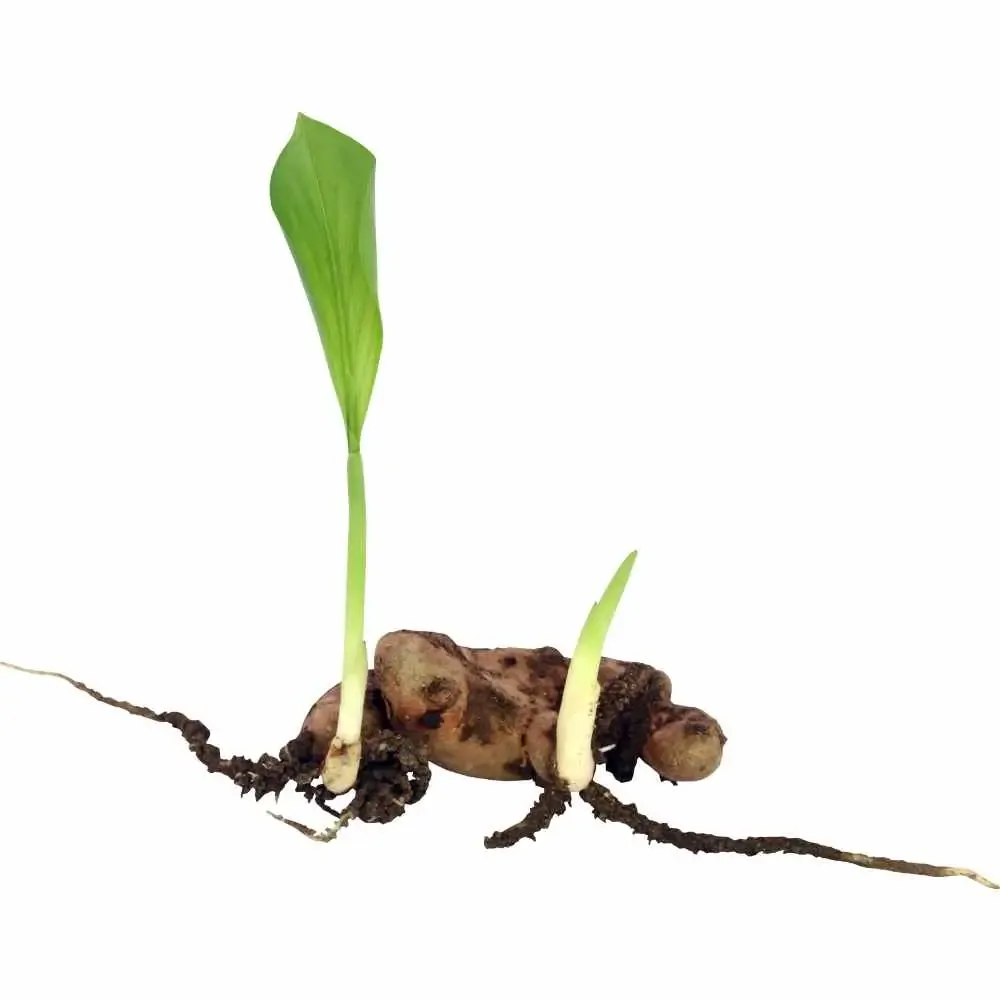
Medical Plants for sale on etsy to grow outdoors and indoors.
Having these live medicinal herbs in your kitchen allows you to easily access their health and culinary benefits. Whether you are using them to treat a specific health condition, work them into your cooking, or simply looking to improve your overall well-being, these herbs can be a valuable addition to your medicinal plant collection and a beautiful addition to your home decor as well.
Follow Us:
Find us on YouTube, Instagram , Pinterest and TikTok! We love to Plant chat. We also comment, like and occasionally share your content to our daily stories. We’d love to see your plants. Share your joy in your houseplants. Happy Planting!
Reference: Healthline: Homegrown Herbal Remedies:
Related Content:
